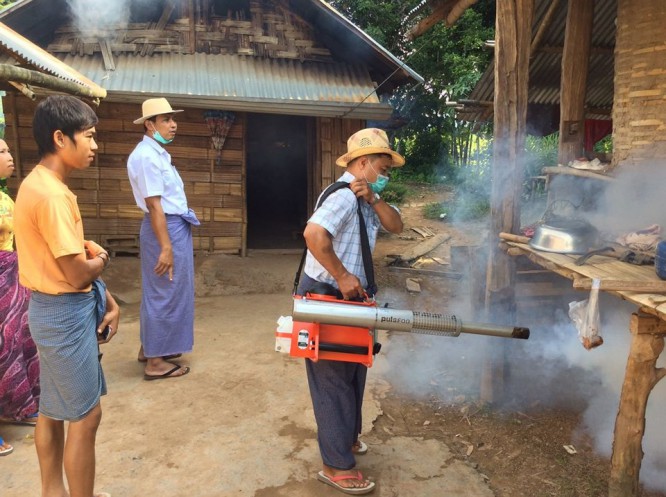Burma’s state media has reported that 19 people across the country have died so far this year from Japanese encephalitis, while some 173 confirmed cases of the disease have been recorded.
The report said that the cases were initially detected in Irrawaddy, Rangoon and Pegu divisions, but later spread to northern Shan, Arakan, Karen and Mon states.
Health officials are quoted, saying that they have detected no further infections in Irrawaddy and Rangoon divisions since control and preventative measures were put in place. However, the disease continues to spread in the other regions.
Japanese encephalitis is spread by a virus transmitted by mosquitos, and can cause severe illness with symptoms including high fever, vomiting, and loss of consciousness. It can result in death in acute cases, with children being the most susceptible.
Burmese state media said that government health officials are implementing control measures, such as fumigating neighbourhoods where the disease has been detected, and are planning a vaccination programme for all children aged between nine months and 15 years.
[related]
Meanwhile, in a separate report this weekend by news service Myitmakha, public health officials in Lashio, Shan State, were quoted as saying that two individuals had died recently in northern Shan State from Japanese encephalitis as of 18 August, while a further four persons had died of encephalitis from other causes. Characterised by inflammation of the brain, encephalitis can have a variety of viral or bacterial causes, and is commonly fatal.
A doctor cited in the report said that measures are being taken to combat mosquitoes in the northern Shan region, and that an immunisation programme is currently under way to protect the elderly, who are most prone to this strain of the virus.



